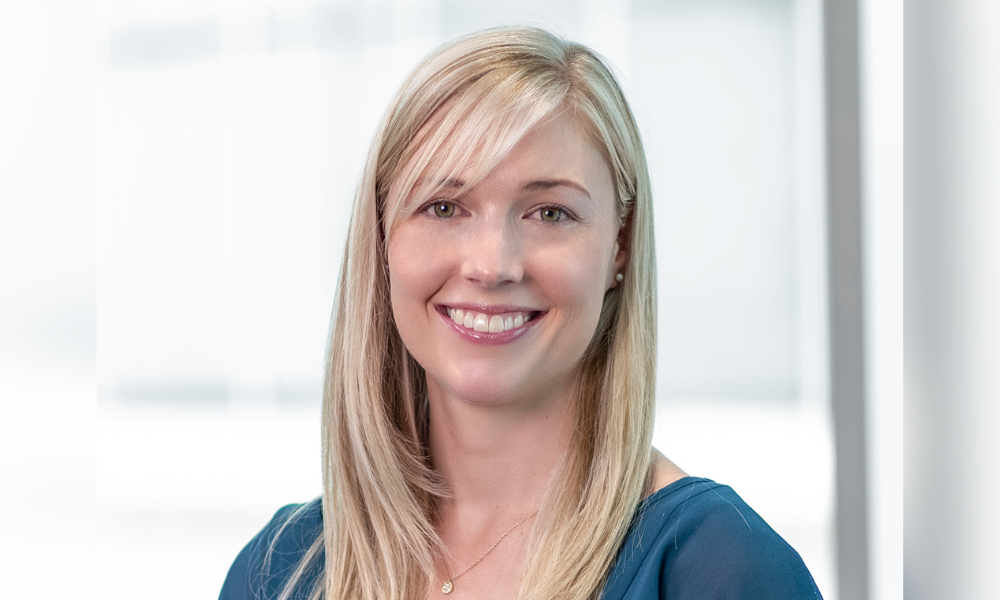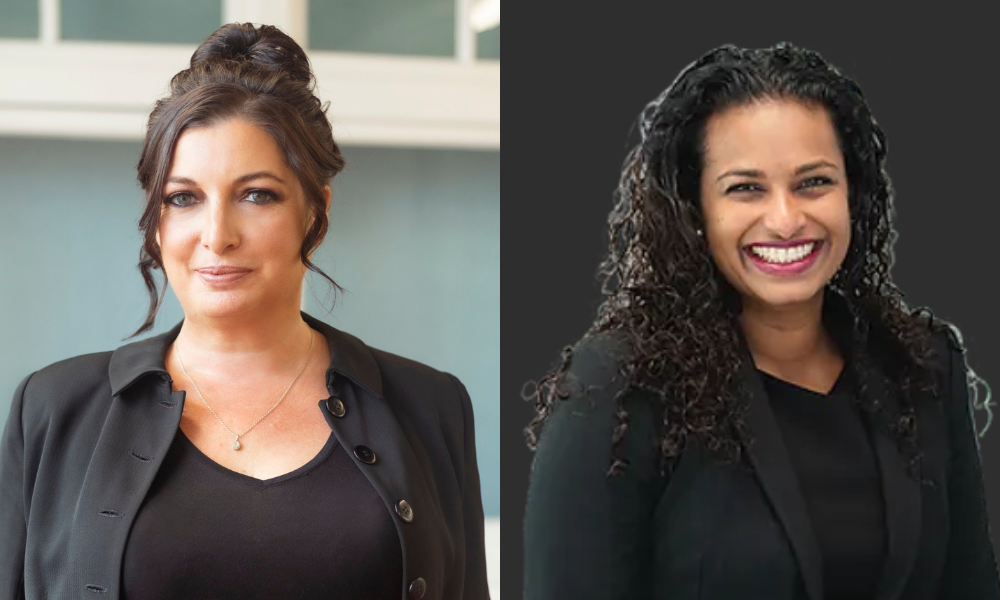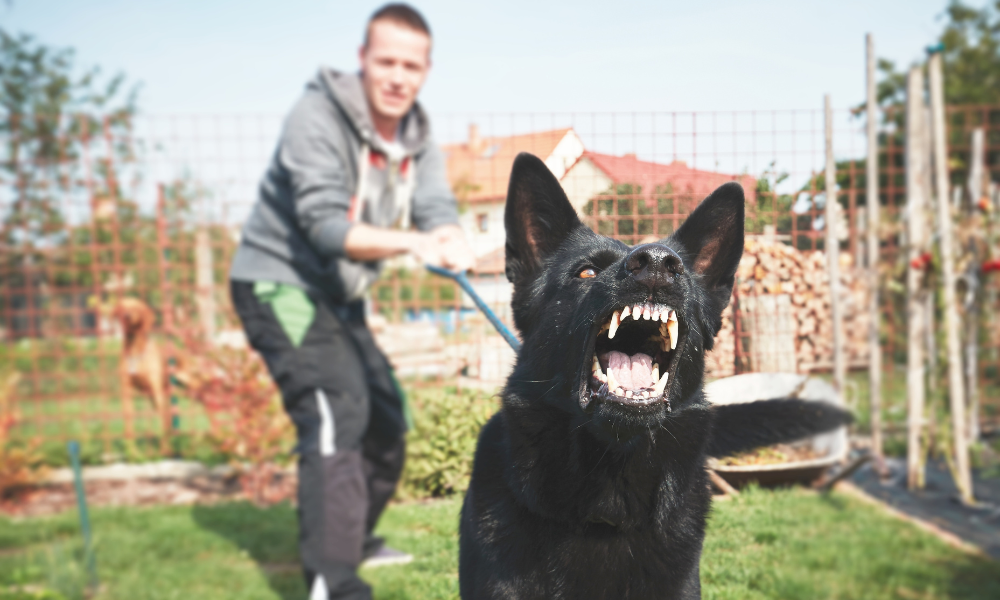Discover how she blends her passion for law and fitness in a unique career she calls 'hybrid lawyering'

Stephanie Hadley has found a way to thrive in the legal profession, a place where many struggle to strike a good work-life balance. An associate at James & Wells, Hadley has seamlessly merged her two passions—law and fitness—into a unique career that she describes as "hybrid lawyering." It's a concept that’s deeply tied to her identity, allowing her to combine her legal career with her work in the fitness world.
Hadley’s journey with fitness began during her university days at the University of Canterbury, where she started teaching group fitness classes and worked at the University’s recreation centre. Coming from a dance background, fitness had always been a part of her life. This foundation gave her the strength to handle the rigorous demands of law school.
“There were huge benefits in being in that space, and also dealing with the huge mental load that was law school,” Hadley tells NZ Lawyer.
Latest News
“There were a couple of years where I didn’t teach group fitness or dance, and I think I was probably the most burnt out during those years. That tells me that I function best when I’m doing those two things – fitness and law – equally.”
Hadley eventually launched her own barre and pilates business, teaching morning classes before heading to work at James & Wells which she then took online after the COVID-19 lockdowns. Today she teaches group and private sessions in various Pilates studios around Christchurch, including working with young dancers with The New Zealand Youth Ballet Company. She also chairs a newly launched industry organisation, Pilates Aotearoa, as a way of combining her governance and lawyering skills and giving back to the industry.
This blend of two professional worlds inspired Hadley to coin the term “hybrid lawyering.” She explains: "Hybrid lawyering is a term I made up, because I’ve seen it becoming more frequent. People are able to balance things a lot more with their flexibility, which wasn’t an option at a time when you had to have your bum on your seat 9-5."
Hadley emphasises that hybrid lawyering is not the same as simply having a side hustle. It’s a conscious choice to pursue both professions simultaneously, finding fulfilment in each and allowing them to inform one another.
"You do it because you don’t want to go into either full-time—you actually want to do both, and it’s quite tied into your identity,” she says.
Preventing burnout while enriching your legal practice
One of the key insights Hadley has gained from her dual roles is how the legal profession can avoid burnout, a concern that looms large in many law firms. She notes that contrary to tradition, law does not have to be a burnout profession. Instead, it’s all about making its systems and processes work to accommodate more flexibility.
Having said this, Hadley acknowledges that ‘hybrid lawyering’ won’t be for everyone. There is merit in focusing on one goal, and not spreading yourself too thin. However, she also highlights that her time in the fitness world has significantly enriched her legal practice in unexpected ways.
“I would not have enhanced my soft skill set to that extent in the legal profession, and you can’t discount that type of experience,” she says. “In the fitness world you are working with all types of people – often many who would never step foot in a law firm and your client base can be very diverse”.
“During my clinical diploma of Pilates, there was a huge focus on psychosocial factors, how words can motivate or demotivate people, and how this affects results. That’s basic client management that you’re never taught at law school. It really made me ask more questions, be more curious and take the time to listen to clients a lot more.”
Promoting wellbeing among colleagues
Recognising the importance of mental and physical health, Hadley has made it her mission to integrate wellbeing into her work environment. At James & Wells, she initiated wellbeing workshops for her colleagues, inspired by her involvement in the NZ Law Society's Stepping Forward program. These workshops, covering topics such as burnout and career progression, aim to foster open conversations and promote resilience within the firm.
The workshops were held online, during lunch breaks, and encouraged meaningful dialogue among participants. Hadley recounts how even the firm’s partners contributed, sharing their personal experiences and offering insights on how to cope with the pressures of the profession.
"We’d never had those discussions as a firm, but I think people felt quite comfortable to engage,” she said.
“People come and go, and they take from it what they want. We saw people taking little micro-steps towards being more sociable, going outside more often, and just having more fun.”
Hadley is now working to implement the wellbeing workshops as part of a broader wellbeing strategy, and to create a better picture of how this could impact recruitment and retention.
Ultimately, these discussions reflect a broader shift in how people define success in the legal profession.
"People’s definition of success is changing,” Hadley says.
“They’re not just striving to be a partner in a law firm, they’re striving to make a difference and tackle more societal challenges like wellbeing, sustainability, etc. That means we have to offer more opportunities like hybrid lawyering. I know that if it hadn’t been an option, I likely would not have stayed in the profession.”






